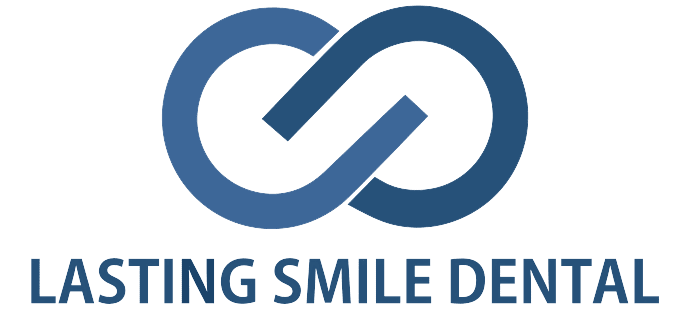Dental Procedures and pregnancy
Pregnancy is the time in women’s lives when they are most conscious about their health, surroundings, and any intervention they are going through. Most frequently asked questions by pregnant women are either dental procedures safe for them in pregnancy?
In this article, we will explain the safety of dental procedures among pregnant women.
During pregnancy, women are more prone to decaying processes, infections, and poor hygiene. Dental care is vital for oral health, and to some extent, it can not be stopped just on account of being pregnant if comorbidities do not coexist.
Is it ok to go to the dentist while being pregnant?
Oral health is an essential component of body health. It is always recommended by the dentists to get your oral health examination every six months.
During pregnancy, the body undergoes additional stress, which leads to functional and structural decline, especially of teeth. Hormonal changes are generally on the peak during pregnancy, which can either cause food cravings or loss of appetite. On account of this transition, the oral health of females during pregnancy becomes of great concern.
According to the study conducted by the Australian Dental Association, the myth about avoiding dental exists in more than half the population of pregnant women, and this is alarming as leaving the dental problems untreated during pregnancy can inflict more pain to the woman and cause more significant shear inside the body.

Tooth extraction in pregnancy
In some cases, tooth extraction becomes the last available treatment choice. Mostly, it is safe for women to go for tooth extraction if the damage has gone beyond the control, but women with gestational diabetes or any other comorbidity should delay it to the furthest extent to avoid the pregnancy-related complications.
Root canal in pregnancy
The root canal is a popular dental procedure in which decayed part of the tooth is removed and replaced by a crown to relieve the pain due to nerve endings compression. If the process involves an X-ray application, then it should be avoided in early or first trimester and third trimester, while 2nd trimester is the most favorable time for it during pregnancy.
In case of any dental emergency, a root canal can be performed during any stage of pregnancy and is never advised to delay it.
X-rays in pregnancy
X-rays are the ionizing radiations which are thought to be destructive for the fetus in high dosage. Women are most commonly concerned about x-ray exposure during pregnancy, as it can be damaging to the fetus.
According to medical shreds of evidence, it has proven that x-rays used in dental procedures are usually of low dosage and intensity, and even single time exposure to x-rays is enough for the diagnostic examination. That’s why it is safe for women to undergo an x-ray examination during pregnancy.
The most appropriate time for women to undergo x-ray testing is during 2nd trimester as during 1st-trimester fetus, which is newly growing, can be slightly damaged, and in 3rd trimester it will be difficult for a woman to lie in different positions.

Anesthesia and pregnancy
Anesthesia is used for numbing the area expected to be treated by surgery. Pregnant women must inform their dentist about their pregnancy before any treatment. So the dentists can choose anesthesia suitable for pregnancy as some anesthesia contain felypressin, which can cause vasoconstriction (constriction of blood vessels).
Dentists will recommend low concentrated anesthesia in pregnant condition, which will help induce less stress on the woman and the fetus, which will make anesthesia exposure safe in pregnancy.
Orthodontic treatment and pregnancy
During pregnancy, women do not only undergo hormonal changes, but they also encounter weight gain or weight loss. Orthodontic treatment and devices are designed according to the shape and size of mouth which can be altered due to either fat gain or fat loss in pregnant women, that’s why it is recommended for women to delay this procedure, but if it is necessary to opt for this treatment then there is not any adverse effect of it.
Bleaching and teeth whitening
Bleaching and teeth whitening can be done in-office (done by professionals) and at-home. In these whitening or bleaching agents, the solution containing a specific concentration of hydrogen peroxide is used. Pregnant women should delay the whitening procedure or take precautions in extreme cases as to use only six or less than six percent of hydrogen peroxide concentration in bleaching agent while doing it at home as its unnecessary exposure to other oral structures can cause tissue damage.
How to avoid dental work in pregnancy?
Dental work is undoubtedly not a contraindication of pregnancy, but during pregnancy, a woman is already under extreme stress, so it is logical to avoid any additional procedure or surgery. But in case of any emergency, it is safe to undergo dental procedures with proper precautions.
Women can avoid this exposure by:
- Maintaining good food intake
- Healthy food intake
- Calcium supplements (according to prescription)
- Oral hygiene
- Regular dental checkups
If you are pregnant and don’t know which dental procedures you can do, please seek professional advice for diagnosis and treatment.
Schedule a consultation with our family dentist dentist Dr. Lana Tello at 586-207-1091 or Click here to contact us.

